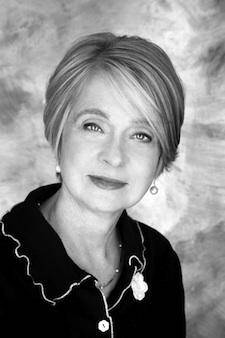One of the best books of history I’ve read is a slender volume by Arnold J. Toynbee called The World and the West. In it, the late British historian takes as his topic the encounter between the world and the West, an encounter that he notes has been going on for at least 400 or 500 years and in which the world, not the West, is the party that has suffered from the encounter. Different though the non-Western peoples of the world are from each other in race, religion, language, civilization and history, Toynbee observes that Hindus, Muslims, Russians, the Japanese, the Chinese and others will all agree that “the West has been the arch-aggressor of modern times.” In this perception, he writes, they are largely correct.
I first read The World and the West a few years ago and found it as timely and unexpected as when it was published in 1953. The conflict between Islam and the West, so often discussed since 2001, is limned there, though with a great deal more sympathy, nuance and historical intelligence than is common in contemporary accounts. In the case of Russia, the subject of the first chapter in the book, Toynbee notes that though the Russians have been Christians, they have never been Western Christians and owe their faith not to Rome but to Constantinople. In the early Middle Ages, relations between Russia and the West were not unfriendly, but they subsequently deteriorated. The Tatars’ conquest of Russia in the 13th century led to losses of Russian territory as Russia’s western neighbors took advantage of her weakness to seize portions of Russia and the western half of Ukraine and to annex these to Western Christendom. It was not until 1945 that Russia was able to regain this territory lost in the 13th and 14th centuries. In the interval, Russia saw invasions by the Swedes, the French, the Poles and the Germans.
It was Peter the Great who launched Russia on a race to catch up with the West, one Russia has been on ever since. Toynbee sees Peter as “the archetype of the autocratic Westernizing reformer” who imposes Western ways and technology on his society in order to resist its domination by the West. In the 20th century, Communism became another weapon in the struggle. Toynbee calls Communism a Christian heresy, a Western creed Russia adopted to wage spiritual war against the post-Christian West.
It is interesting to think how long the contest over Ukraine between Russia and the West dates back. It is also interesting that the indigenous people of Crimea are the Tatars. Deported from the peninsula by Stalin, it is only since 1991 that they have been allowed to return to their homeland. Seeking to build a navy, Peter the Great made war on the Crimean Tatars, but it wasn’t until close to 60 years after his death in 1725 that Russia finally gained a port on the Black Sea. It remains important to Russia, a major factor in her recent intervention in Crimea.
The collapse of Communism has quieted but obviously not ended tensions between Russia and the West. Listening to the commentary on the crisis in Ukraine, I’ve been struck by the nationalism it has aroused in this country as well as in Ukraine and Russia. The United States won the Cold War, but some seem eager to restart it. Russia is being painted not just in somber hues but as absolute pitch black. This though the United States has also, and rather often, schemed to keep countries in its sphere of influence.
Should we see the crisis in Ukraine as the Western powers of light arrayed against the Russian powers of darkness? Warnings of the provocation to Russia engendered by NATO’s continued expansion eastward have gone unheeded for 15 years. Robert Jervis, a professor of international affairs at Columbia University who favors creating a neutral Ukraine as a solution to the face-off, calls Europe’s actions leading up to it “totally irresponsible.”
Scholars take the long view, which is what Toynbee does so lucidly in his book. His reflections on the encounter between the world and the West do not provide nostrums for the current conflict in Ukraine but may jolt readers’ underlying assumptions regarding it. Describing the existential crisis other cultures face in contending with the West’s superior technology— and noting that technology is bound up with values—Toynbee offers a historian’s perspective on the struggle of non-Western cultures to survive the assault of an aggressive and dynamic civilization.









Ms. Patterson is likely conflating Russia with Kievan Rus’ – a common American mistake. Ninth Century Rus’ were the ancestors of several Slavic principalities. Present-day Russia was not differentiated from the various domains until the 14th Century appearance of the Grand Duchy of Moscow, which before 1654 did not encompass *any* portion of today’s Ukraine. Western and Southern Rus’ principalities participated in a Lithuanian-Polish-Ukrainian Commonwealth. In 1648 Bohdan Khmelnytsky led a Cossack uprising against the Commonwealth and in 1654 forged an alliance with Moscow, after which *Eastern* Ukraine gradually fell under Russian domination. Western Ukraine remained under either Polish or Austrian administration and was *never* governed by Russia until 1939 (not 1945), when it was invaded by the Soviets as part of the Molotov-Ribbentrop Pact.
Ms. Patterson should not try to re-write history as Putin’s apologist.